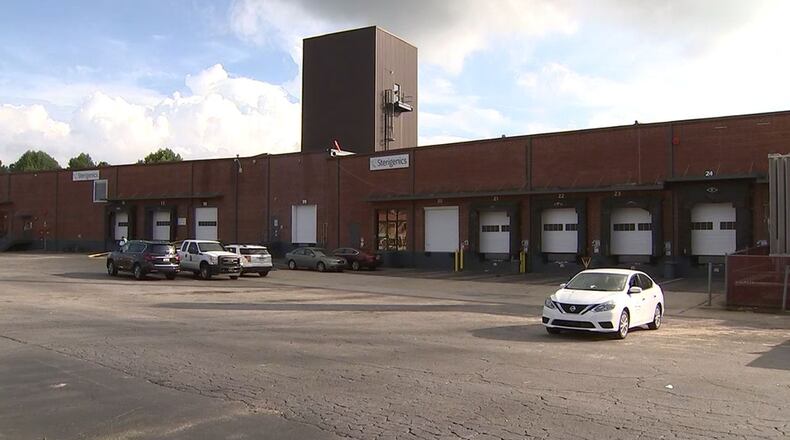A federal judge has granted a request by a medical sterilizer in Cobb to resume full operations immediately by issuing a temporary restraining order against the county, which had sought to limit its activities.
The order expires after 14 days.
Cobb Spokesman Ross Cavitt said the county had no immediate comment.
The company, Sterigenics, welcomed the decision in a statement.
“This ruling enables Sterigenics to serve the urgent needs of health care workers and patients, without product limitation, as we begin the proceeding to establish our right to continue the safe operation of our longstanding facility in the interests of public health,” the company said.
Sterigenics became the focus of local protests after a July report by WebMD and Georgia Health News highlighted possible increased cancer risk for surrounding neighborhoods due to the facility's use of ethylene oxide, a carcinogenic gas.
The plant has been closed since summer, at first to install new pollution controls and later pending the issuance of new permits by the county.
Last week, County Chairman Mike Boyce, under pressure from the federal government, signed an emergency order allowing the plant to reopen on a limited, temporary basis in order to sterilize personal protective equipment to address the COVID-19 pandemic.
The company sued shortly thereafter to remove any restrictions on its operations, arguing that Cobb lacked the authority to compel it to seek a new occupancy permit to comply with fire safety regulations.
The restraining order comes a day after the U.S. Environmental Protection Agency Office of Inspector General issued a report criticizing the EPA's failure to inform communities living near "high-priority ethylene oxide-emitting facilities," including Sterigenics in Cobb and Becton Dickinson in Covington, of potential health risks and actions being taken to address those risks.
The report points out that EPA officials only met with residents in Georgia after the public learned of their cancer risks through news media, almost a year after the release of the federal National Air Toxics Assessment highlighting those risks.
The EPA has argued that public outreach should be left to states, the report says.
“We agree that the Agency should continue its ongoing efforts to conduct additional, more refined investigations of risks for communities near the 25 high-priority facilities and the census block facilities,” the IG’s report reads. “However, these efforts should not preclude the Agency and the respective states from promptly informing the communities near the high-priority facilities about the [National Air Toxics Assessment] results and the actions that the EPA and the states are taking to address public health concerns associated with ethylene oxide emissions.”
The inspector general concluded that the office’s recommendation is “unresolved,” and officials are requesting a meeting within 30 days with the EPA’s associate deputy administrator.
EPA Administrator Andrew Wheeler responded in a statement, saying “The tone and substance of this report indicates a disconnect in the US EPA IG’s office.”
“Most surprising is that in our final meeting with the IG’s office on this matter they provided no indication that there would be any unresolved issues,” he said. “As a result, we are formally requesting the EPA IG rescind the report so it can be appropriately updated.”
This is a developing story...Please return to AJC.com for updates.
About the Author
Keep Reading
The Latest
Featured




